Pat the Bunny could have saved punk rock from itself, had he really wanted to. He represents a type of songwriter who truly comes along once in a generation, if not once in a few generations. If we’re lucky, he eventually won’t just be equated to Crass and Fugazi, but to Bob Dylan and Woodie Guthrie as well. He could take complex political theory, philosophical principles, and tense moments of moral compromise and reduce them to a few salient lines of poetry, hurling them back at you with his whole being. He lived a life of reckless hedonism very much intending to die, and captured that lifestyle with ruthless honesty. He managed to pull himself back from that brink, and sang about it with equal honesty.
I write about him in the past tense here, though he hasn’t died; he’s just completely stopped sharing his music with the world, which feels like a death to his fans who’ve really only ever touched him through his music. I’ve seen Pat twice, and he was exhilarating both times, but the real magic of his music came from listening to it in isolation, like most truly exceptional music. He was such a quintessentially lonely artist. Beneath the rage and joyful defiance, there’s a permeating sadness at Pat’s inability to ever make the world as it could be in his mind. He once described himself as “an alley cat, more scared of you than you are of me.” As a result, his music resonates best at those most lonely moments in a person’s life; confused, vulnerable, and willing to believe that a better world is possible.
More than anything, that’s what Pat’s music was about: A better world was not only possible, but right around the corner. He always presented himself as an anarchist first and a musician second, and he seems to have maintained his integrity in that regard better than just about any other punk musician. Pat didn’t just sing about never having a job, never giving in to power structures, and trying to build new communities based on equality and total liberation, he actively tried to make those things happen in his life. Unlike so many other punk rockers, he truly avoided participating in capitalism as a system whenever possible; whatever level of fame he may have managed to attain, he never cashed in on it. He essentially founded folk-punk as a subgenre, working as one of the galvanizing forces behind Plan-it-X-Records, the DIY label that mailed kids records for donation prices. He helped found a short-lived collective that provided free bus rides coast-to-coast for artists. One time, when I saw him live, I told him I only had $10 for a $15 CD he was selling and he insisted on giving me two CDs and a zine. If cash was going to have to change hands with him, you could be damn sure he was going to give you everything he could in exchange.
Was he actually changing the world? Did he really even change punk rock? It’s really hard to say, but what I can definitively say is that he changed the individuals who really engaged with his music. Like he once said, “A punk rock song never changed the world, but I can tell you about a couple that changed me,” and if nothing else, Pat’s music fundamentally changed the people who really took it in. Pat the man may not be gone, but the dear friend we had in Pat the Bunny is no more, and for that reason, it feels necessary to explore highlights from his discography and lay out his remarkable trajectory as an artist.
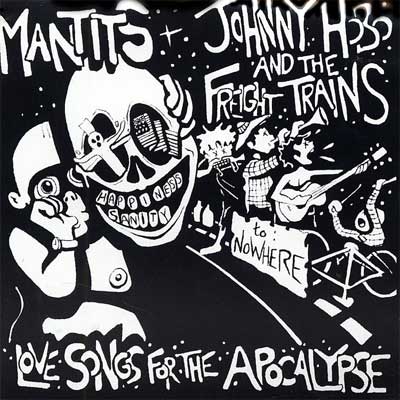
Johnny Hobo and the Freight Trains – LOVE SONGS FOR THE APOCALYPSE
Year: 2005
Favorite Tracks: “New Mexico,” “Whiskey is My Kinda Lullaby,” “Acid Song,” “Harmony Parking Lot”
There’s probably no better example of Pat’s visceral juxtaposition of storytelling and ideology than “New Mexico,” the track that kicks off LOVE SONGS FOR THE APOCALYPSE and essentially introduces himself to the underground punk world. Here, he already lays himself bare, his voice hoarse, his guitar sounding like it’s about to fall apart, raging against the status quo, the loss of people he once considered friends, and his own status as a “class traitor… just another middle-class kid, too.”
This is the biggest difference between Pat and any other punk musician: He possessed a critical, naked self-awareness that other self-righteous punks could never replicate. At times, that self-awareness is hilarious, but mostly it forces the listener to examine themselves and their own behavior and beliefs in a way that can be deeply uncomfortable for any punk with too much ego. Of course, almost as soon as the record was released and discovered, it simply became another measuring stick of punk credibility, seeing who could be as sad and nihilistically wasted as “Johnny Hobo” (as Pat was often referred to at this time, despite already having adopted the moniker Pat the Bunny.)
That question of credibility becomes sticky when considering that Pat’s ragged voice and stories of crack houses and whippets may be affectations. Admittedly, LOVE SONGS FOR THE APOCALYPSE is Pat’s most sloppy record, lyrically and certainly musically. While his raw rage is apparent and his sardonic sense of humor was probably never as sharp and morbid, his need to completely self-destruct by any means necessary definitely seems to have clouded his judgement and ability to write with the clarity he would later discover. At this point, Pat was borderline homeless in Vermont, drinking forties with his friends, who made up the backing musicians in the band, by the train tracks and doing drugs whenever he could find them. His world was fairly limited.
That being said, If you’re a person in need of some cathartic articulation of self-loathing, a release for deeply internalized rage, this album has you covered. To top it off, there are still moments on this record that are as salient and joyful as anything he would ever release. In particular, the chorus to “Harmony Parking Lot” still cuts incredibly deep:
“Here’s to the rubble, a brick through every window, a casket buried six feet deep for everybody’s heroes, here’s to our lives being meaningless, and how beautiful that is, because freedom doesn’t have a purpose.”
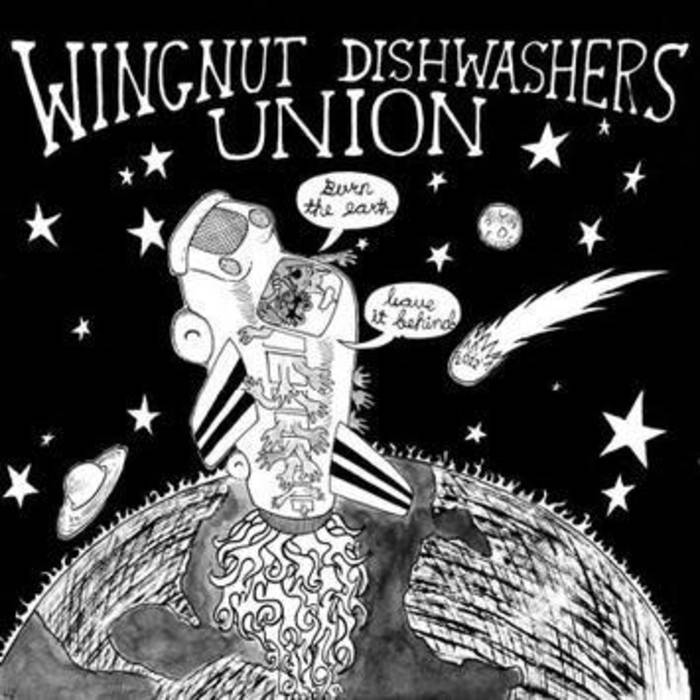
Wingnut Dishwashers Union – BURN THE EARTH, LEAVE IT BEHIND
Year: 2007
Favorite Tracks: “Proudhon in Manhattan,” “Fuck Shit Up!,” “Urine Speaks Louder than Words,” “Jesus Does the Dishes,” “My Idea of Fun”
When a person lives as hard and as fast as Pat the Bunny did, a lot can change in the span of two years. From the opening chords of “Proudhon in Manhattan,” it’s pretty clear that he had already grown and changed in some fundamental ways. Gone is the affected raspy voice, his guitar is crisp and clear, and when the full-blown orchestra suddenly kicks in near the end of the track it’s nothing short of awe-inspiring. If anything, Pat’s voice takes on a sweetness and a sincerity that’s disarming for anything labeling itself as punk rock; you’d be hard pressed to call what he’s doing here “affectation.” Immediately, we’re introduced to a more nuanced, articulate Pat, someone who seems to have done his reading and come determined to preach the gospel of anarchism with more focus and poise than he ever could as Johnny Hobo.
This is the start of Pat referencing a wide variety of important radical literature; from Pierre Joseph Proudhon to Emma Goldman to John Zerzan to Huey Newton, Pat is personally responsible for opening up an entire generation to radical thought and activism beyond the lyric inserts on punk records and vague Noam Chomsky quotes. Not only that, but here we also see Pat starting to inject hope into his lyrics, constantly referencing ways in which people he knows and loves are beginning to live with a little more freedom and with a little less authority. He makes the dream of total liberation from capitalism, racism, and sexism feel practical, like it might already be real.
Pat was traveling and touring at this point, performing at house shows, putting out music through DIY Bandits and Plan-It-X, and participating in radical communities everywhere he went. Unfortunately, he also had discovered heroin, referencing it twice on BURN THE EARTH. It’s very different than the celebration of acid and whiskey present on LOVE SONGS, there’s a real yearning to stop before the monster of addiction fully takes hold of him. It would eventually fully consume his life, to the point where he had to drop everything and go to rehab in 2009. On top of that, there were already hints at the exhaustion with being in the punk rock limelight which would eventually drive him from the music entirely.
Yet, despite the dark cloud rolling in, he still managed to write some of the best songs in his entire catalog. “Urine Speaks Louder than Words” is one of his funniest and most poignant songs, extolling the virtues of using piss as a form of protest. “Jesus Does the Dishes” is a perfect example of his ability to effortlessly change how the listener sees the world entirely. There’s not many punk musicians who can get away with singing about how much they love Jesus, with the caveat “…because Jesus he was a dirty homeless hippy peace activist, who said drop out to find God to anybody that would listen.” But the most endearing, heart-rending moment of the whole record comes at the very end on “My Idea of Fun”:
“So I don’t wanna kill a cop, what I want are neighborhoods where the cops don’t have to get called when the shit goes down, because our friends they are enough, and our neighbors have enough, finally we’re enough… Please help me be, please help me be enough.”
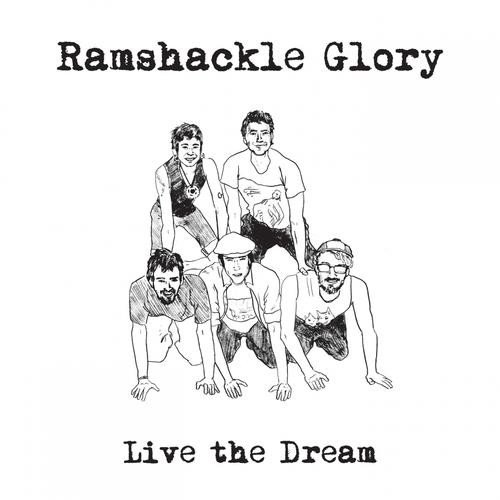
Ramshackle Glory- LIVE THE DREAM
Year: 2011
Favorite Tracks: “First Song,” “We Are All Compost in Training,” “Vampires Are Poseurs,” “Your Heart is a Muscle the Size of Your Fist,” “First Song Pt. II”
If two years could drastically change Pat, three years made him borderline unrecognizable, at least to some who had once considered themselves die-hard fans. Pat got sober, not just from heroin, but from booze as well. LIVE THE DREAM becomes his personal journal and testimony to the sheer exhaustive process of quitting the substances that had once defined his life, all while backed by the greatest band he would ever perform with. This is especially prescient coming from a musician who hitherto firmly believed in free will and self-determination. Suddenly, he finds himself forced to confront the reality of how little control he has over himself or his life, and to redefine what liberty really means to him in the process. He owns up to all the points where he’s lied to himself, where he hasn’t been able to see the bigger picture to allow himself the chance to truly live a full life, not just a free one.
This album saved a lot of people, it pulled a lot of human beings from the very fringes and put them back together again. Pat never wanted to take credit for that, in fact it made him deeply uncomfortable whenever anyone tried to tell him how much the record helped them, but sift through the comments on this record anywhere on the internet and you’ll be amazed at the outpouring of relief people need to express. Pat’s ability to somehow articulate the darkest, most confused moments in a person’s life is truly unparalleled, and as he takes you down the rabbit hole (pun very much intended) of his addiction, he explains emotions that anyone who’s nearly lost themselves to some form of mental illness can readily relate to.
That’s not to say he lost his political edge by any means, he still takes plenty of shots at the system, the law, and people’s misconceptions when it comes to identity politics. The rage isn’t gone, but it’s completely redirected. He refuses to keep tearing himself down while he tears down the political machine, and that notion, coming from someone as intensely ideologically driven as Pat, is truly revolutionary. The struggle to liberate yourself from your own worst tendencies became the most necessary struggle of them all. Another world was not only possible, but it could be achieved personally.
There are any number of great tracks to seek out on this record, “Your Heart is a Muscle” in particular being the closest thing to a “hit” Pat ever achieved. (When he wanted to, Pat could write an enormously effective chorus.) The track that really sells the album, however, is “From Here to Utopia.” Here, Pat articulates his worldview about as well as he ever would:
“I want something more than an apology to say when I look the world in the eyes. I’ll tell you, man, my friend William came to me with a message of hope, it went ‘Fuck you and everything, that you think you know. If you don’t step outside the things that you believe they’re gonna kill you.’ He said, ‘No one’s gonna stop you from dying young and miserable and right, if you want something better, you gotta put that shit aside.’”
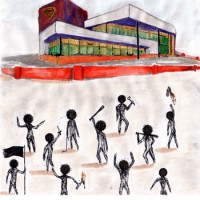
Pat the Bunny – PROBABLY NOTHING, POSSIBLY EVERYTHING
Year: 2014
Favorite Tracks: “I’m Going Home,” “We Were Young Once,” “Run from What’s Comfortable,” “A Glorious Shipwreck”
Years of constantly performing, touring, and mailing CDs and t-shirts to kids really got to Pat. He didn’t enjoy the process, opening this record singing, “I hate strangers, loud noises, and crowds, so I’ll play a show every night.” If you were paying any attention at all, it was clear Pat was winding down, obvious that his definition of freedom was no longer aligning with “growing old in rooms filled with kids with unruly haircuts.” He performed with a compassion and warmth that was undeniable, but it took its toll on him.
Post LIVE THE DREAM, Pat released a slew of Ramshackle Glory records, solo records, and even a split with the folk-rapper Ceschi. His output once he got sober is nothing short of astounding; he had so much to say, and said it with a dignity and clarity like never before. The solo records really dig into the melancholic Pat, the neurotic recluse who’d lost too many friends to smack, the feds, and simply losing sight of the revolution. Pat’s storytelling is particularly effective on PROBABLY NOTHING, touching on the lives of his friends with scathing precision, at moments seeming ready to burn everything down all over again, simply sounding world weary at others. It’s a bleak record, but if you’ve made it this deep into the journey, a necessary one. It’s a reminder that just because demons may be conquered, it doesn’t mean they ever truly go away. It’s a reminder that sometimes when a person gives all of themselves to something that they love, it’s best to trust them when they say they’ve had enough. He never wanted to be a hero, he never wanted to lead a movement — at the end of the day, he was just a man who played guitar. I hope he finds peace and joy, whatever he may do with his remaining days.
It’s not all drudgery. On PROBABLY NOTHING, Pat leaves some bright points in the face of all his inner turmoil that are more than enough for anyone who stuck with him until the end. On “Run From What’s Comfortable,” he sings:
“But if we can stay one inch this side of dying, the most terrible things we can imagine will happen, and our breath will carry us forward, when we don’t have the strength to carry ourselves. And we’ll get another chance at not spreading misery, at least for today. And if I have to tell you that we are beautiful, maybe you’re in the right place. And if I ever forget that we are beautiful, I hope you’re here to remind me.”


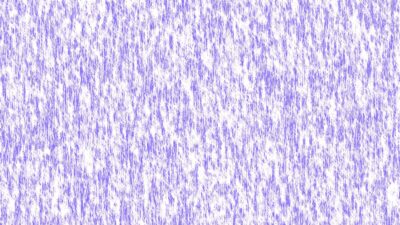
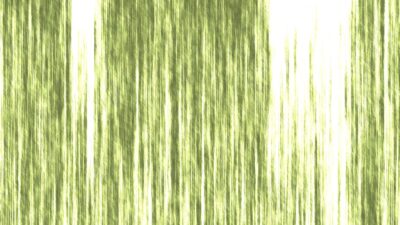
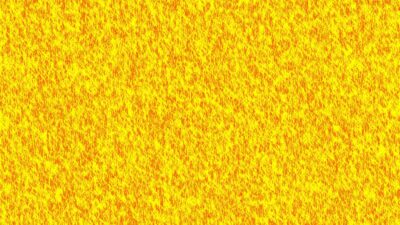
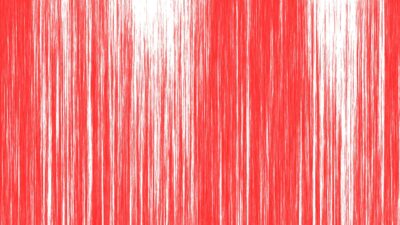
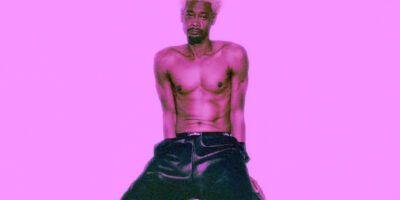

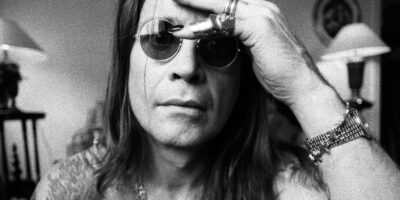







Comments